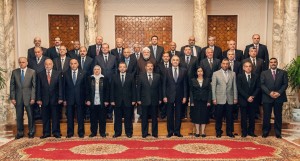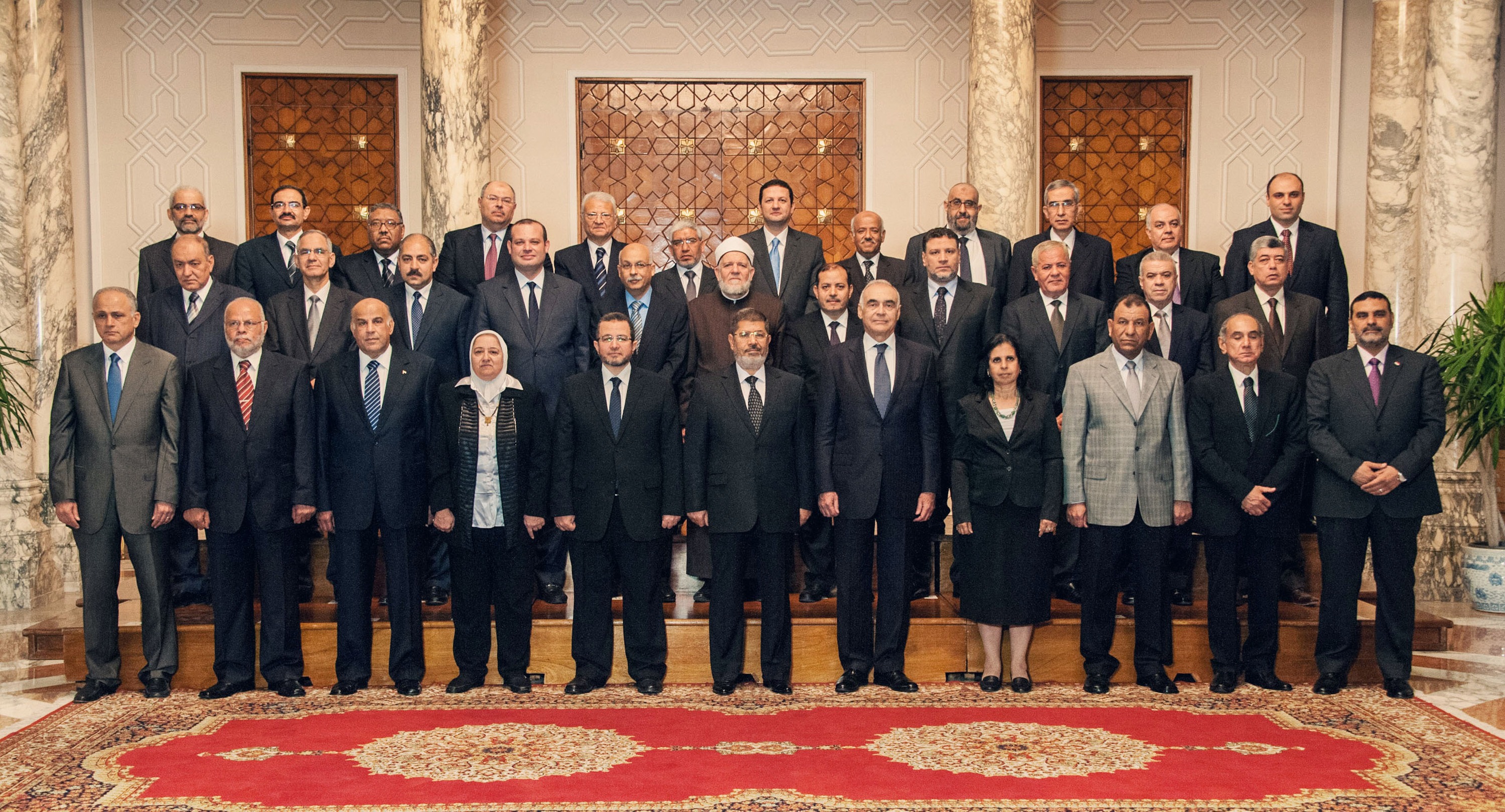
Spokesperson for the Prime Minister Alaa Al-Hadidy announced the names of nine of the new ministers in Tuesday’s cabinet shuffle: Ahmed Suleiman- Minister of Justice; Hatem Bagato- Minister of Parliamentary Affairs; Sherif Hassan Hadarra- Minister of Petroleum and Natural Resources; Ahmed Eissa Ahmed- Minister of Antiquities; Ahmed Mahmoud Al-Gizawy- Minister of Agriculture and Land Reclamation; Fayad Abdel Moneim- Minister of Finance; Amr Darrag- Minister of Planning and International Cooperation; Alaa Abdel Aziz- Minister of Culture; and Yehia Hamed- Minister of Investment.
Chairman of the Freedom and Justice Party (FJP) Saad Al-Katatni welcomed the formation of the new cabinet, according to a statement issued by his party. He expressed his full support and said he had called on the FJP to lend full support to the new government to overcome the current transitional phase, and called on all political forces to do the same.
His deputy chairman Essam El-Erian noted that the cabinet change came at a difficult time and the new ministers would carry heavy burdens. He highlighted that many of the newly-appointed ministers had no party affiliations.
El-Erian later added that the FJP did not have a role in the selection of the new ministers.
The Ghad Al-Thawra Party characterised the reshuffle as “disappointing to the aspiration of citizens” and expressed disappointment that Minister of the Interior Mohamed Ibrahim had not been replaced after he “failed to restore security to the street and lawlessness continues”. The party also criticised the absence of any youth figures in the new Cabinet, and called on all ministers to reveal their solutions to overcome the obstacles that currently face the country.
Khaled Alam Eddin, a member of the Salafi Al-Nour Party’s High Commission, considered the reshuffle a failed attempt to deal with the current crises of political polarisation, according to state-owned Al-Ahram. He added that no FJP cabinet members had been sacked in the reshuffle and that controversial ministers such as the Minister of Information had remained in their positions.
The spokesperson for the liberal Free Egyptians Party, Shehab Waguih, told Al-Ahram that he considered the reshuffle as if it had not taken place and said the Brotherhood’s prominent figures continue to control the affairs of the country, saying Deputy Supreme Guide Khairat El-Shater and Hassan Malek continue to control economic affairs, while Presidential Assistant for Foreign Affairs Essam Al-Haddad wields control over the country’s foreign policy.
President Mohamed Morsi thanked the past ministers on his Twitter account for working under “sensitive conditions” and said their replacements would contribute to improve daily services for citizens.
Morsi called on others to express their solidarity with the new ministers and provide “constructive criticism” moving forward.
Additional reporting by Ibrahim Al-Masry

